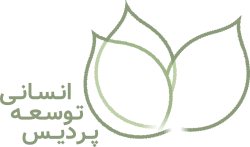
چگونه میتوانیم از علم آیندهپژوهی، برای ساختن آینده خود استفاده کنیم؟

Introduction
All organizations throughout the world wish to find the most reliable ways toward effectiveness. At a higher level when organizations could find the way, they struggle to enrich it as much as possible. This essay concentrates on the role professionals might play for the enriching.
These days encountering with continuous change are inevitable for organizations. In this vein, organizational leaders put attempt to manage these changes effectively and can be survived in this competitive environment. To do so, organizations have to provide employees with conditions that enhances employees’ power in their positions (Hökkä, Vähäsantanen, & Ikävalko, 2020). In particular, the concept of professional agency has been approached by organizational researchers to empower organizations. As one of the dominant ways to empower organizations, the construct of professional agency contributes to equipping employees in dealing with organizational and personal challenges (Eteläpelto et al., 2013; Goller & Paloniemi, 2022).
Concerning the individual aspect, the significance of agency has been emphasized because employees are required to learn continuously, accept new responsibilities, develop their professional identities and career pathways, be creative, and investigate novel solutions to everyday challenges at the workplace. Professional agency reflects transformative power to develop and change organizational practices (Imants & Van der Wall, 2020).
Two important points are worth to mention especially in educational organizations.
First. The professional agency is seen as directed and implemented towards one’s work. The agency of teachers is composed of active involvement in directing and designing their working activities (van der Heijden, 2017). This happens by making choices and participating in decision-making issues, so, putting effect in ways that include both personal and shared work activities (Biesta et al., 2015; Vähäsantanen, 2015). In this regard, a professional agency can be viewed, for instance, on personal manners of working, collective work culture and activities, the contents of the work such as job duties, and the development of the curriculum. As a result, it can be stated that having an effect at work is a critical component of professional agency within education. If employees are viewed as effective actors in a professional setting, there will be the realization of their voice and attitudes; and support for their active involvement and activities.
Second. The concept of professional agency takes the form of developmentally-oriented tasks at the individual and collective phases in educational settings. This gives importance to the issue that professional agency has an influence on instructors’ individual learning processes and pathways (Lai et al., 2016; Tao & Gao, 2017). Moreover, the agency is also viewed as a precondition for shaping the conditions of educational environments, for both individual and shared work activities (e.g. Toom et al., 2015). Moreover, the practices shaping professional agency lead to generating and modeling new ways of working, making developmental suggestions, and involving in collective developmental practices. Regarding these matters, Clavert, Lofstrom, and Nevgi (2015) coined the term change agency to obtain teachers’ activities directed at setting new ways of working, performing things differently, and suggesting new meanings and tasks within pedagogical communities.
Up until now, the concept of professional agency has largely been realized in terms of rational and goal-oriented activities aimed at professional identity negotiations, and at improving work tasks and cultures in organizations (cf. Hökkä et al., 2017). However, recent studies tend to explore how the professional agency is resourced, limited, and affected by emotions within organizations (e.g. Hökkä et al., 2019). The effect of emotions on organizational quality can be seen in employees’ well-being. When individuals are psychologically empowered, they can function better in their positions and as a consequence, organizations can reach their objectives sooner; so, developing conditions in which employees are emotionally empowered contributes to better-managing changes.
Biesta, G., Priestley, M., & Robinson, S. (2015). The role of beliefs in teacher agency. Teachers and Teaching: Theory and Practice, 21(6), 624–640
Clavert, M., Lofstrom, E., & Nevgi, A. (2015). Pedagogically aware academics’ conceptions of change agency in the fields of science and technology. International Journal for Academic Development, 20(3), 252-265.
Hökkä, P., Vähäsantanen, K., Paloniemi, S., & Eteläpelto, A. (2017). The reciprocal relationship between emotions and agency in the workplace. In M. Goller & S. Paloniemi (Eds.), Agency at Work. Agentic perspective on professional learning and development. Springer, 161-181.
Hökkä, P., Vähäsantanen, K., Paloniemi, S., Herranen, S., & Eteläpelto, A. (2019). Emotions in leaders’ enactment of professional agency. Journal of Workplace Learning, 31 (2), 143-165.
Hökkä, P., Vähäsantanen, K., & Ikävalko, H. (2020). An Integrative Approach to Emotional Agency at Work. Vocations and Learning, 1-24.
Imants, J., & Van der Wal, M. M. (2020). A model of teacher agency in professional development and school reform. Journal of Curriculum Studies, 52(1), 1–14
Lai, Ch., Li, Zh., & Gong, Y. (2016). Teacher agency and professional learning in cross-cultural teaching contexts: Accounts of Chinese teachers from international schools in Hong Kong. Teaching and Teacher Education, 54, 12-21.
Tao, J., & Gao, X. (2017). Teacher agency and identity commitment in curricular reform. Teaching and Teacher Education, 63,346-355.
Toom, A., Pietarinen, J., Soini, T., & Pyhältö, K., (2017). How does the learning environment in teacher education cultivate first year student teachers’ sense of professional agency in the professional community? Teaching and Teacher Education, 63, 126-136.
Vähäsantanen, K. (2015). Professional agency in the stream of change: Understanding educational change and teachers’ professional identities. Teaching and Teacher Education, 47, 1-12.
van der Heijden, H. R. M. A. (2017). Teachers who make a difference: An investigation into teachers as change agents in primary education. Eindhoven: Technische Universiteit Eindhoven.

